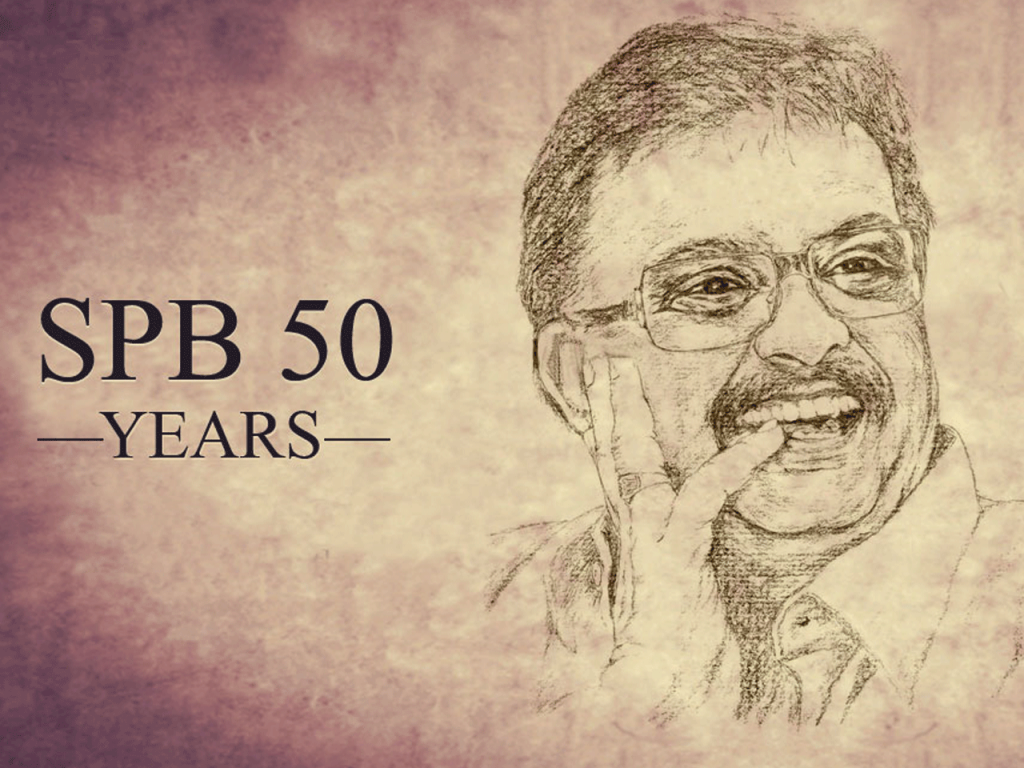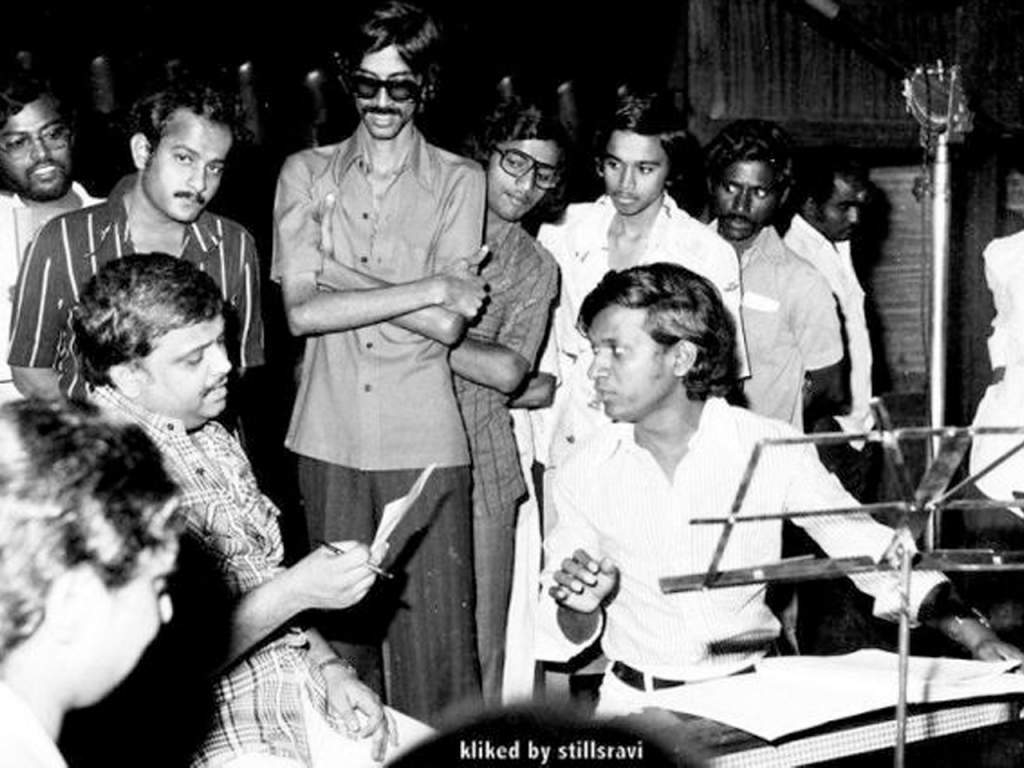The Tamil Film songs are part of the Tamil cultural life around the world, and many of the younger generations might not know the era of Ilayarajah who almost controlled the South Indian Film industry in 80s and 90s until A R Rahman broke into the market. Equally S P Balasubramanium holds a legend title in Tamil Music industry who have sung through many generations and still attracts many younger generations. Two legendary southern musical stars – singer SP Balasubramanium and composer Ilayaraja – who have teamed up to deliver hits – will now have to sort things out in court.
Balasubramanium, who is currently on a world tour, has said he would not sing songs composed by Ilayaraja at his other upcoming concerts. The world tour, SPB50, to commemorate Balasubramanium’s 50th year in the film industry, began in August in Toronto after which they performed in Russia, Malaysia, Singapore and Dubai besides numerous shows in India.

Recently , Ilayarajah dragged a controversy and widely discussed on Tamil Social media as the news about Ilayaraja’s assertion of copyright and sending notices to singers like SP Balasubramanium (SPB) and KS Chitra to stop singing songs with his music , shocked many fans and industry.
Leaving the moral issue aside, Ilayaraja’s action raises these important questions:
Whether he has the legal right to stop public performance of songs with his music?
Whether his copyright assertion eliminates the possibility of live performance of songs by other singers?
Will his action assure him the expected revenue?
Whether the Government of India has a role to protect the interest of music lovers and other performers?
Is music maestro and composer Ilayaraja right in sending a legal notice to singers for singing the former’s compositions at concerts?

Ilayarajah & SPB in 70s
Industry watchers and legal eagles believe that the veteran music composer may be right in demanding prior permission and royalty for his compositions. The Royalty pay is very fundamental rights in English Music and many Singers claim the royalty up to 50 years.
The first issue to be dealt with is based on the authorship of the song.
The song includes musical work, lyrics and the sound of the singer, which is the performance, in which the composer himself is coined as the author of musical work in the Indian Copyright Act and the lyricist is the author of lyrics and the performer is specially identified with a set of exclusive rights as performer’s right.
They are the first owners of their work. But generally, once the song is incorporated into a cinematographic film, the ownership is transferred to the producer of the film based on a contractual relationship.
Often, the composer surrenders all the rights to film producer and the film producer become the sole recipient of royalty. Therefore, Ilayaraja might have fully transferred the copyrights of some of his musical compositions to film producers through a contract. This situation deprives lyricists, musicians and singers of the right to royalty for the use of their work outside the film such as FM radio, ringtones etc. The 2012 amendment to the copyrights Act assures the right to royalty to the music composer, lyrists and singers for any use of their work outside the film. The amendment also makes illegal any surrender of right to royalty through contract. As a result, even though the rights are transferred, the producer does not have the right to object the performer from enjoying performer’s right without hampering other author’s rights.
“If a song has been composed by an individual and does not have a common ownership then an individual has the right to claim copyright on the same. However, if the rights for the composition has been acquired by a music label or film producer, then the rights wrest with them,” Safir Anand, Senior Partner, Anand and Anand, a law firm which specialises in copyright issues, said.
Pradeep, Copyright Consultant and lawyer to Ilayaraja, when contacted said, “We have sent a notice to the event organisers and not to any person. As far as copyright is concerned, we have been following such issues since 2015”.
Ilayaraja had in 2015 warned radio stations and television channels of legal action if they were to play his songs without his consent.
However in this case, lawyers point out that while SPB may need to seek permission or pay royalty, technically he can perform since he has lent his voice to the song. The law doesn’t stop Balasubramanium from performing songs he has lent his voice to. The singer holds equal copyright for 50 years from the date he sang it.
Curiously, in India, singers cannot be barred from performance for copyright infringement as the onus of paying royalty lies with the venue owner. In India, singers can’t be stopped from performing on grounds of copyrights. It is the owners of the venue where the performance is taking place, let’s say an auditorium, which must pay the royalty which is charged through copyright societies.
How does this law applied in foreign countries?
In North America or Europe, ordinarily, no venue would allow anything that may involve a possible copyright violation. Royalty in such cases would be paid through copyright societies in the countries which would have reciprocal arrangement with Indian copyright societies. For a public performance of music other than religious functions, one needs to pay royalty to three collecting societies.
Ilayaraja is believed to be a member of IPRS (Indian Performing Right Society) and it is expected to collect royalty for him. The IPRS is also expected to collect royalty from its counterpart ASCAP (American Society of Composers, Authors and Publishers) for public performance of his musical compositions in the US.
The singers are free to perform songs with a different music. In that case, the singer is not obligated to pay any royalty to the music composer. However, this may affect the music lovers’ urge to listen to the song with original music composition.
The upshot: Balasubramanium has a right to sing his songs. That’s no copyright violation. Ilayaraja may want his share of the proceeds.
While the law considers the legal rights of the creation , music lovers on social media say applying the law will make , already diminish Ilayarajah’s songs , rapidly vanish, as many radios and concerts would not be able to pay royalty; they might choose other songs instead.




